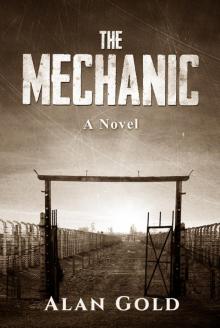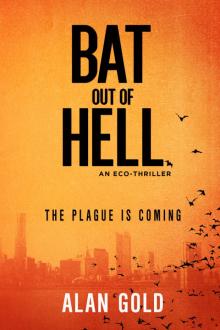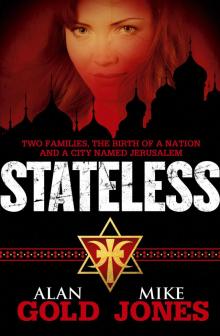The Mechanic Read online
Page 2
As she stood from behind Theo’s desk, she made a last-ditch stand so that they didn’t have things all their own way. ‘One thing I am going to do, and that’s to send this testimony, this diary written by Joachim Gutman to Yad VaShem, the Holocaust Museum in Jerusalem, Israel. They’ll know what to do with it. Frankly, I think I should recommend that they prepare a case to have this Wilhelm Deutch, this mechanic, rehabilitated, and even considered to be named as a Righteous Gentile Among the Nations. I reckon that would be a fitting memorial for my grandfather.’
CHAPTER ONE
Palace of Justice
Nuremberg, Allied Occupied Germany
June, 1946
Notes found in the cell of Wilhelm Deutch, prisoner
Here it begins.
Here it ends.
And in the scheme of history, what does it all matter?
Take a good look at history, if you doubt me.
Humankind has been forming societies on this earth for … what? … say 12,000 years.
Let’s ignore the time when ancient man lived in the trees, or huddled together for protection in caves from whence he ultimately emerged after a thousand millennia, grime-covered and timorous, in order to conquer the world.
Let’s only include the time in which he built huts and shelters and dwelling places and did things other than hunt and fish. Let’s measure the ascent of Humankind from when he started planting seeds in time and reaping the benefit of his God-given brain.
Alright, so, in mankind’s 12,000 years of civilisation, how many innocent men, women, and children have been killed in warfare? How many have been slaughtered in battles between villages or cities or countries? How many have been the casualties of skirmishes between chieftains in opposing valleys who wanted access to water or grazing fields?
How many innocents have been murdered and trampled into the mud or the sand because of the self-aggrandising words of some philosopher-king who believed that everybody should bow before himself as a deity.
How many unrecorded names disappeared from the annals of history because of the Hittites or the Akkadians or the Greeks or the Romans or the Crusaders …?
Ten million? Or twenty million? Who knows, maybe a hundred million.
Nobody will ever know. Yet an American judge has just dared to call me … what was it? Ah yes, “the personification of evil! The mechanic who ensured that the wheels of the Nazi death machine turned efficiently and remorselessly” … as though he would understand the concept of evil. Was he in the concentration camps? Did he see what went on in the crematoria?
Such intemperate words. Such words of condemnation from on high. But in the scheme of things, what does it all matter. In a hundred years, who will remember my name? And who will remember the name of Adolf Hitler? And who will remember the names and the faces of six million Jews? Not today; not tomorrow; but in a hundred years, a blink in the eye of history?
And so it begins. Or is here where it all ends? Is my beginning in my ending?
Now that’s something to think about …
If he stretched out his arms, he could almost touch opposing walls. If he stood on tiptoes, he could actually touch the spider-webbed ceiling.
But he chose not to. He made the decision not to exert himself. He chose, instead, to lie on his cot and watch the spider. It was his choice. In his cell, he made the choice. Not them. In his cell, he was the master.
He lay down because he enjoyed watching a spider lying in wait for a fly. And he liked watching the fly, which had spent the past three days circumnavigating the single electric globe. It was an eternal flame, like some obeisance to a deity, alight both during the day and all throughout the night. The Jews lit candles to remember their dead. Who would light one for him? His wife? His daughter? How would he be remembered?
The light allowed the caustic eyes of the guards to invade him through their spy hole whenever they chose. But not if he ignored them! When they shifted the metal patch which covered the hole in the door, and the single jaundiced eye filled up the gap, as though staring down the barrel of a microscope, they were able to look at him … They thought they controlled him, but he knew that he wasn’t in their thrall. He played the game of ignoring them, and during the past eleven months, they’d spied on him less and less.
His life, now, was wholly dedicated to territory. He had been arrested while queuing for food, recognised by a man he’d never before seen, a man who was more skeleton than human, whose sunken white and pallid face seemed glued on to his skull, whose arms and legs were nothing more than bones, and who looked as if the slightest stirring of dusty wind in that cold and desolate bomb-site would blow him into his grave. Yet even though the rest of the skeleton was dead, there was life in this man’s eyes, rat eyes, cunning, narrow slits which took in everything; the eyes of a camp inmate, darting around to ensure his survival; eyes which were fed on the milk of hatred, on the desire for revenge. And when this man looked at him, those eyes saw and knew and remembered!
This skeleton who walked and talked, dressed in a filthy cap and torn rags, stared at him for five minutes or more, never once taking his eyes off him. And then he screamed like a woman about to be raped, and pointed a bony finger at him, and the whole world stopped and stared. Two American MPs came running up to the skeleton and listened to the broken English of his story; then they walked over to the man and hauled him out of the queue. And the next moment he was appearing before someone called a Provost Marshal, and he hadn’t been allowed to contact his family, but had been rushed to this prison where he’d spent the past eleven months.
Now his life was lived almost exclusively within four dank walls. He was a creature of the guards whom he rarely saw; he would rise when they told him to, exercise when they said, eat and drink what he was given; and use words they put in his mouth. But that was only for an hour or so a day … for the rest of the time, for the remaining twenty-three hours, hour after hour, day after day, he’d be alone in his cell, staring at the ceiling, contemplating his fate.
He recognised that beyond his door, beyond the spy hole, they were the masters; but in his cell, he controlled the domain. And it was his claim of territory which kept him sane. For as the indisputable master of his domain, for twenty-three of the twenty-four hours of each day, he was in command! He determined the position of his desk, his writing utensils, his chair (he could sit by the grille of the window, or near to the door, or with his feet up on his cot, as he chose), even the position of the plates and cutlery on which his food came to him through the slats of the door, three times a day. If he chose, he could make collection difficult by placing his empty plate and cup just out of reach of the guard. If he chose.
And he was in charge of when he stood or sat, when he rose or reclined. When he was active, writing, or passive, lying and resting. But these days, respite was a thing of the past, a faded memory. Lying on a cot in the middle of the day was his defiance of them. His act of rebellion.
But only he knew that! Only he realised that it was all an external show, an act of bravura which amounted, in the long run, to nothing. For sleep was beyond him, and without rest, his mind wandered, his thoughts were always on the edge of panic, and his stomach felt as though it were full of knotted, wriggling snakes. What did they know about him which they could use against him? Of what was he to be accused? Everyone knew of the trials of the leaders of the Third Reich, and that soon the other leaders would be put up for trial and hanged … the judges and the businessmen and the men who controlled the Ministries and the Einsatzgruppen who ran the mobile killing machines, and the doctors and the other major players who had made Germany so strong before the War, yet which now made it into such a reviled nation. They had been arrested, and many would be hanged.
Leaders … yes! Arrest and try the leaders by all means. Arrest the men who commanded the Einsatzgruppen, the fearsome squads of mass-murderers who followed the German army when it invaded a town or a village and rounded up the Jews and murdered them all. A
rrest them! But why him? He was a mechanic, a knob twiddler. A nobody. An ordinary German. He was told to do a job, and he did it. He obeyed the instructions; he followed orders. And now he was to be tried and, probably, hanged, because he had followed orders. It was insane.
And that had been his life for eleven months; not preparing a defense or talking to counsel, or allowed to see the charges against him; but lying in limbo, hidden from sight, removed from the world as though he were a virus, a microbe; just like Hitler had tried to do to the Jews!
The spider sat patiently in the darkened recesses which hid the corners of the cell. The fly rested occasionally upside down on the ceiling or clinging to the black and twisted cord from which the light globe was hung. Then it would launch itself at will, and fly around the room. He followed the fly. Within his cell, the fly was free, as free as him. But like him, the fly had nowhere to hide.
He kept crusts of bread from his supper to feed the fly so it wouldn’t leave his cell and disappear into the outside world. He smiled when he thought about the absurdity of his situation. Both he and the spider were spending their days trying to seduce a fly.
He listened for noises in the corridor. They were the only relief from the monotony of this part of the day, the middle part between waking and going back to sleep. A time when nothing happened. The real torture of imprisonment. Even the rack or the thumbscrew would have been a welcome relief from the aching monotony of waiting and worrying about his fate.
He lay on his bunk, trying to define distant sounds. Marching feet, orders shouted, vehicles sliding to a halt on gravel in the outside world. The hysterical revving of motorcycle couriers for whom everything made way preceded by barked instructions to move along or get out of the way. American voices oddly in place in a German world.
Whenever he heard the noise of a Jeep or a tank rumbling down a road, his heart increased in pace at the thought of what was going on outside his cell, and of the life which was passing him by. The noises of the outer world defined freedom. But the thick walls of his cell defined both his status and his place.
Most often, he would hear the sounds of movement in the prison. But as they became repetitive, the daily traffic through the corridors beyond, the sounds diminished in significance. So he waited until he heard the sound of footsteps stopping outside in the corridor. Invariably it would be accompanied by the noise of the metal eye-patch scraping against the door as it was pushed to one side. Then there would be a sudden eruption of a slanting beam of dim and dusty light, which would appear out of nowhere, illuminating a patch of his cell floor; but this beam of light would quickly be broken by the unblinking eye of a guard pinpointing his position and disposition.
More control. A statement of his entrapment made without words. Then, contemptuously sliding the eye-patch shut, the guard would walk dismissively away, as though the prisoner were a mere item, a cipher, a line in the checklist of the guard’s many duties.
In the morning, he would busy himself with washing and shaving, and combing his hair. Then he would open the hatch at the bottom of his iron door, another slit with which the outside world invaded his sanctuary, and he would pull in the tin tray on which his breakfast had been placed. Always the same breakfast. Even on Sunday. Two slices of bread. Plum jam. A tin mug containing tea.
He would set aside part of his breakfast bread for the time when he returned from his exercise. He was never hungry when he awoke from the fitful rest of the night, but his hunger returned with exercise. And he never saved his drink. Water was not a scarce resource, not like real coffee and real butter in the time of the Nazis. No, there was no need for him to marshal his resources and save water, because he had a tap and a drain in his cell. And so, unlike the last days of the war when there was no water to be had except for stagnant pools in Berlin drains and gutters, he didn’t need to conserve liquids.
He always savoured his tea carefully, relishing it from the first sip which burnt his upper lip to the last gulp when it was already tepid. Even the pain of being burnt held its own allure. It was part of the routine; and routine was certainty in an uncertain existence.
Always tea. Not coffee, of course. Never coffee. And after all these months of imprisonment, he was beginning to appreciate the taste of the tea. At first, at the beginning, he’d been revolted by it. It was thin and devoid of any flavor, and had an aroma of being stewed and brewed as if created by someone who hated him, by some indifferent cook who took no pride in his work; reheated from previous days, or cooked in pots which still had old and decaying tea leaves stuck to their bottoms and sides. But as time wore on, and prison food and drink destroyed his taste buds and the memory of real food, the tea began to take on a flavour of its own.
Then after breakfast he would dress in his prison uniform and follow the guards from his room as they opened his and other cell doors to let his fellow prisoners out. And they would proceed obediently behind the guards, like goslings behind a mother goose.
In the beginning, all those months ago after he and the others had first been arrested and incarcerated by the Allies, their American jailers had taunted them, jeered, and spat on them like schoolyard bullies. He and the other concentration camp employees were considered as vermin, and openly ridiculed by the young American boys, not yet old enough to shave. The immature victors emasculating the once-potent losers.
But when the evidence of the crimes of their leaders—Göring and Hess and Ribbentrop and others—was unveiled to an unsuspecting and incredulous world, things changed in the demeanour of the guards. Every day, they listened in horror to the evidence enunciated through the very Oxford tones of Sir Hartley Shawcross, or the Bostonian cadences of the American Robert Jackson, and the mood of the guards changed from ridicule to contempt, and then to outright barbarity. Not even the officers wanted to hold in check the treatment the guards meted out. As the evidence of Nazi war crimes and crimes against humanity mounted, layer upon layer of evidence given by witnesses who had been dehumanised by the concentration camp guards, the anger of the American boys towards the prisoners changed from contempt to hatred. Suddenly prisoners appeared at exercise with pronounced limps, their faces and arms and legs covered with welts and bruises. And all, it appeared, were due to clumsy accidents.
And when the United States Prosecutor began giving evidence about the death camps, the covert punishment meted out by the guards, once hidden discretely behind closed doors, became open and violent. Prisoners couldn’t walk outside their cells without being kicked or punched, or threatened with the muzzle of a rifle. The unofficial though righteous indignation of the guards, young boys with the downy skin of innocence, showed in their flaring nostrils as they read their American Army newspapers, as fresh evidence of the concentration camps and the mounds of bodies became public knowledge and erupted into the minds of the victors.
But the brutality of the guards lasted only for a few months. It slowly waned and ultimately died as the novelty of the crimes of the Third Reich became timeworn, until the genocide of the Jews became history and was relegated to inside pages of the newspapers of New York and London, until the concern for justice against the war criminals was replaced by hysteria over the winner of a baseball match.
And still the guards guarded the prisoners.
Not important prisoners, of course. Not men who had strutted in the mansions of the Führer Corps, or stood proudly to accept the tributes of the NSDAP or the Wehrmacht. No! Those men, Goring and Hess and Ribbentrop and Dönitz and Keitel and the rest now were dead or buried alive … tried, convicted, hanged, or imprisoned for life.
And there had been other trials in the Allies’s search for retribution. The victors’ trials. There was the trial of the doctors and the jurists and the I. G. Farben trial … and now it was his trial. He and nine other engineers and guards and workers who had kept the machinery of the state running while the Army and Air Force and Navy had waged war. He and others were being tried for following orders, for making sure that the enemies of t
he State were incarcerated and dealt with according to the Laws of the Führer Reich.
And for that, for doing what he was ordered to do, he was being branded a war criminal. And he would hang. Because no matter what he or his defense—his American lawyer—said, there would be no justice here. This was a place for retribution. Just as the death camps of Auschwitz and Belsen and the others had been places for settling scores with the Jews who’d conspired against Germany since the time of Martin Luther, so this court at Nuremberg was the designated killing field, the Allied camp where the Nazi prisoners were concentrated, for retribution against the men who had waged war against the rest of the world … and for those who had been their accomplices and helped them.
Footsteps in the corridor. His head prickled at their approach. Usually they grew louder as they grew nearer, and then he felt disappointment as they disappeared and he was shrouded again in the monotony of his cell. But this time they stopped. He raised his head above the level of the rough gray woollen blanket. The sound of a key in the lock. Then a guard opened the door. The same young American boy. Or was it? They all looked the same in their dull uniforms. He stood contemptuously in the doorway. His face and the way his body slouched betrayed his boredom.
‘Up!’
A single word. Designed to demean a man old enough to be his father.
‘Quick, you bastard. Up!’
‘May I ask why?’ he asked of the young guard.
‘No, you may fucking not ask why, motherfucker. Up. Time for court. Special sitting. Maybe they’re gonna stretch your fucking neck. Bastard!’

 Birthright
Birthright The Pretender's Lady
The Pretender's Lady The Mechanic
The Mechanic Bloodline
Bloodline Bell of the Desert
Bell of the Desert Bat out of Hell
Bat out of Hell Stateless
Stateless